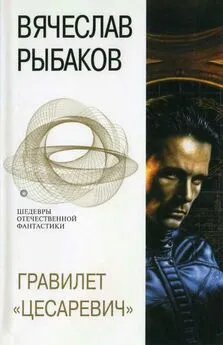Владимир Орловский - Машина ужаса [Фантастические произведения]
- Название:Машина ужаса [Фантастические произведения]
- Автор:
- Жанр:
- Издательство:Leo
- Год:2018
- ISBN:нет данных
- Рейтинг:
- Избранное:Добавить в избранное
-
Отзывы:
-
Ваша оценка:
Владимир Орловский - Машина ужаса [Фантастические произведения] краткое содержание
Машина ужаса [Фантастические произведения] - читать онлайн бесплатно полную версию (весь текст целиком)
Интервал:
Закладка:
When the atomic vortex flew past Paris without causing any damage, the first wave of refugees that sought salvation outside the walls of Paris, surged back into the city. Eitel dashed off for Genoa. Despite the fact that at that moment the city was not in immediate danger, young Flinder found in it almost the same picture as in Paris.
In the city full of commotion and beset with despair, there was a little island against which live waves dashed themselves to pieces. Here, day and night, in fire and heat of the melting furnaces, and amid the clank and din of machines, thousands of people worked, like the children of Vulcan in the blacksmith shops of hell. The world could rage with madness, as it saw fit, but here they forged implements for the struggle for its existence, while there still was a drop of hope left.
At the time of Deriugin’s arrival, three powerful engines were completed, while another five were still in work. Every day, from early morning, leaving behind him the filthy and narrow streets of the noisy city, the engineer would enter the smoky kingdom of iron and steel, whence it was destined to launch at the needed moment the iron giants, wherever the enemy was expected.
It was here that young Flinder had found him, after an untiring chase. Deriugin was in the yard of the gigantic plant which produced yesterday a new electromagnet which was to be tested this day. At first the engines were tested. The groaning of their oppressive weights shook up the machines with a heavy tremor, so that the earth began to shake under them. Several mechanics, together with Deriugin, walked around the iron monsters, observing their rhythm, breath and the workings of each and every part of them.
The chief engineer, a tall, slim Italian, pointed out some inaccuracies in the refrigerator; a group of mechanics stopped to watch a tiny stream of gas that had been leaking out from somewhere.
Deriugin stepped aside, writing something into his notebook, when suddenly, in the rear of the dark passageway of the interior building, appeared the figure of a man who stopped bewildered in the center of the yard, apparently stunned by the clanking and noise that filled the air from all sides. The visitor’s face seemed familiar to Deriugin, but, for the moment, he could not recollect where he had met these restlessly seeking eyes, the protuberant forehead and hard-compressed lips.
Something strange, impetuous and alarming was in the stranger’s pose, and Deriugin was about to inquire how and wherefore he had come here, when their eyes suddenly met. Within a trice, Deriugin’s memory conjured up the forgotten image for him, and within the same trice the intruder’s eyes became inflamed with such rabid hatred, that the engineer unwillingly retreated. Eitel’s right hand dropped into his pocket and within a twinkle of an eye, Deriugin saw before himself the dark gap of the pistol’s bore.
Not realizing what it was all about, he uttered a cry and dashed off to the side of the ponderous engine. A shot rent the air, followed by another. Deriugin felt a burning sensation on his left shoulder. He turned around. Eitel stood a few feet away from him, aiming at close range for a new shot. From the cabin of the electromagnet a frightened face was peering out. At the refrigerator, the mechanics had gathered into a group, not knowing what to do.
'In this very brief moment, there flashed through Deriugin’s mind a bright thought. He made a sprint to the side of the magnet and shouted to the mechanic:
“Enrico, turn on the current!”
Another shot rent the air. Deriugin dropped to the ground. In the next moment something very astonishing had occurred: the pistol, tom out from Eitel’s hand by the great power of the magnet, flew up into the air the dozen feet 'that separated it from the magnet, struck with all its might against the frame and remained there, as if held up by an unseen hand.
Confounded, Flinder remained standing unmoved, gazing about himself with frenzied eyes. When the people ran up to him and grasped him by the arm, he did not try to resist, but followed silently after them. Turning back his head, from time to time, he looked up bewilderingly at his weapon, which hung upon the strange monster as though it were glued down to it.
Several people ran up to Deriugin and busied themselves about him. Happily, his wounds, one in the shoulder, the other in the left leg, were not dangerous; at any rate, the bone was not touched. He was carried into the central building.
“Well, well, Signor Deriugin, I am happy to congratulate you!” said the chief engineer, after he was bandaged. “You certainly had a lucky escape. Had you not torn the pistol from the fiend’s hand with the aid of the electro-magnet, we would not have had the pleasure of speaking to you now.”
Indeed, the current turned into the field coils had transformed it into a powerful magnet, which attracted Flinder’s pistol.
“Everything is well — that ends well!” replied Deriugin smilingly. “But it is too bad, for the accident will retard my work for a few days.”
A CROSS-EXAMINATION of Eitel proved beyond conjecture that they were dealing with a mentally-deranged person. He was one of those innumerable victims of the turbulent quarter of this century, whose fatigued and strained mind could not resist the powerful attacks of these frightful days. To turn him over to the authorities was not considered a wise move, as the streets nowadays were overfilled with similar madmen. Besides, the city itself resembled a huge Bedlam. It was decided to detain him on the factory grounds under special guard, in one of the rooms of the resident body of engineers.
However, in the pellmell of new events, he was completely forgotten. At the end of the week a dispatch came that the fiery vortex had again appeared on the French coast and it was coursing along the southwestern boundary toward the Mediterranean Sea. Three electromagnets from the Creusot Works were sent out by railroad to intercept it, but they arrived too late. Destroying Toulouse and converting the Haute-Garonne into a veritable desert, the fiery vortex again wended its course over the maritime expanse. Now, within about forty-eight hours, it was expected somewhere on the western coast of Italy. Five new engines, fully equipped, were mounted on platforms in Genoa and shipped to Rome, whence it was easy to move them to any point on the coast. Locomotives stood in readiness, day and night, awaiting orders to fling their loads into action.
Deriugin, the chief engineer, and a number of mechanics were all ready at any moment to meet the treacherous foe.
However, after reading through the details about the movements of the atomic flame, the young engineer suddenly began to doubt the expediency of his own project. The cursed sphere continued to grow ever larger and larger, making the approach to it difficult and dangerous. An entirely new question now arose. Would it be possible to get near enough the sphere — within the proximity of about 70 or 100 feet, for instance, without being exposed to the danger of being scorched in its sultry atmosphere? Would the electromagnets be effective at such a distance? And, if so, suppose they succeeded in encircling and arresting it? What then? Wasn’t it too' late?…
Deriugin, however, did not share his views with his comrades, but continued to work as obstinately as before. But this was not all; there was still another discouraging feature of this affair. Alarming dispatches were arriving from Naples; Vesuvius was speaking in a manner never heard before. Tremendous pillars of vapor, 12 to 18 miles high, were rising from the crater. The Earth was sighing and rumbling as on the day of the Last Judgment. Naples was already destroyed and the inhabitants were fleeing from under the ruins in wild terror.
All this was sufficiently awe-inspiring in itself, without adding to the already difficult struggle with the atomic vortex. All the railroads were crammed with train-loads of refugees from the South. The panic, doubled by the new catastrophe, completely disorganized the authorities. Besides, even here, about two hundred kilometers away from the volcano, light tremors of the Earth were beginning to be felt. And most of all, a noticeable wind was beginning to draw. The chief engineer was grumbling and scowling, it seemed, as if he too were beginning to wonder whether the struggle was worth the pains.
On Tuesday evening, June 1, the radio announced that the vortex had passed between Corsica and Sardinia, taking an eastward course; at the same time another engine had arrived in Rome from Genoa and five from Le Creusot, France, to assist in the work. This was considered sufficient power to cope with the situation. The whole division of engines moved further south, every necessary step was taken to facilitate the unloading, when the hour of battle arrived, or to trail the fiery enemy, if a chance presented itself. A chain of observation posts were stationed all along the coast; on belfries, churches and field watch- towers. Everyone’s nerves were strained to the extreme by feverish expectations. Meanwhile, from the south-east, the din of the volcano was clearly audible and a fiery pillar, like a giant torch, stood high in the darkening sky. Deriugin was filled with apprehension, as he anticipated the new, impending storm and shook his head sadly when he realized suddenly that the wind had begun to play stronger and sharper.
At two in the morning, the flaming cloud appeared alongside the shore. The engines were immediately started eastward toward the sea. At three o’clock, in two lines of a semi-circle one kilometer in diameter, they rolled down to the sea at the very moment when the flaming sphere, in curling vapor, whistling, hissing, with rolling thunder, reached the contingent almost in the center of the arc formed by the iron giants.
Deriugin was in one of the electro-magnets; he sat in a small cabin together with the commander and mechanic in the curve of the left line. It was dawning and in a few minutes the whole panorama was as clear as daylight. On the right and on the left puffed and roared the metallic parts of the massive monsters, resembling huge crabs. On the upper platforms gleamed flashes of light — optic signals, transmitting orders from the chief engineer, whose engine was outside the arc of the second line. Directly in front the fiery, fuming Sphere, freed from the vaporous atmosphere, darted lightning, emitted sparks, roared and thundered and breathed forth its heat and blinding light. Here, at a distance of a half a kilometer, the intensity of the heat was being felt. Everywhere, on the engines, over the bushes and trees along the shore, untouched as yet, jumped and quivered lights, like drops of cold water. At the same time, from the south-east ever louder roared the distant mountain and a huge black-gray pillar standing in the air, tossed its smoky peak up high on the crest of the wind.
The strange chase began.
The center of the arc remained stationary while its ends gradually were bending in, encircling the sphere from all sides and from the rear. The electro-magnets were put into action, but, at such a distance their influence, apparently, was insufficient. The fiery vortex moved eastward into the depth of the continent and the engines were retreating at the same speed. Retreating thus about six miles amid thundering, booming, crackling and dinning from all sides, the chief engineer decided to start the offensive. The center of the front tractors halted, the others closed on to the center from all sides, locking the ring tighter. The fiery sphere was approaching. The engines shuddered, sighed, and bellowed, as if alive. The dazzling light cut the eyes and the air was stifled with heat, as if hell itself had burst open. It was becoming more and more difficult to breathe; the blood rushed up the temples; the body reeked with perspiration, ached and grieved.
Читать дальшеИнтервал:
Закладка:
![Обложка книги Владимир Орловский - Машина ужаса [Фантастические произведения]](/books/1096680/vladimir-orlovskij-mashina-uzhasa-fantasticheskie-pr.webp)

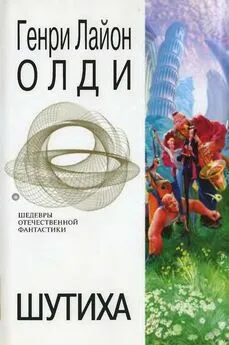
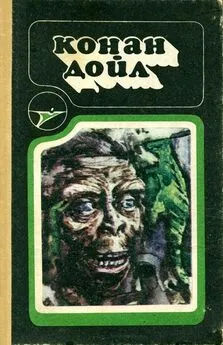
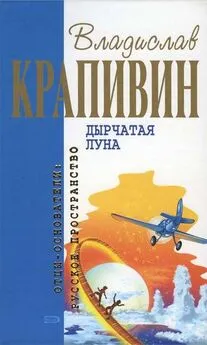
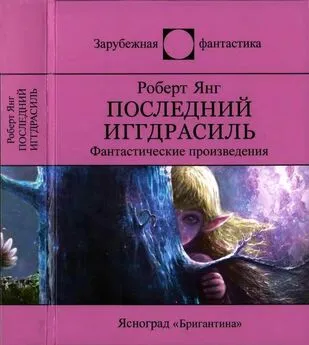

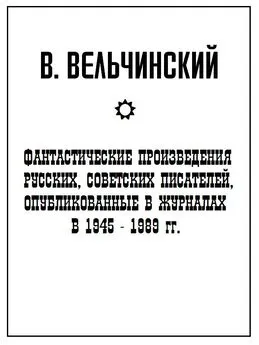
![Гарри Гаррисон - Пропавший лайнер : фантастические произведения [сборник]](/books/1086200/garri-garrison-propavshij-lajner-fantasticheskie-p.webp)

